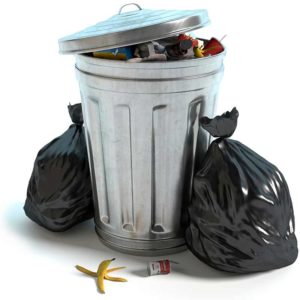 Print this Article
Print this Article

To what extent does Bal Tashchit apply to leftovers at the end of a meal? Can I throw away leftover bread? What about all the uneaten food that my children put on their plates? What about the leftover food in the pans?
As noted in our previous segment, food that will not be eaten and no longer serves any purpose may be discarded. It therefore follows that food that was leftover on someone’s plate may be discarded, since it cannot be served again. Children should be taught not to take more on their plate than they will eat, since this is wasteful.
Bread that can still be reused, may not be discarded if the pieces are larger than a K’Zayit (size of an olive, approximately one ounce). However, pieces of bread that are smaller than a K’Zayit, no longer have any importance and may be thrown away (see Shulhan Aruch, OH 180:3).
Rav Yitzchak Zilberstein (Tzohar Vol. 1 pg. 68) points out that one may not throw away a whole cracker or biscuit even though it is smaller than a K’Zayit. In this case, since the food is completely intact, it does not lose its importance, even though it is less than a K’Zayit. In regards to other foods, the criterion is not a K’Zayit but rather its degree of importance. For example, a whole piece of chicken, that can be served again, may not be thrown away.
The Hinuch (Mitzvah 529) writes that it is the practice of very righteous people not to waste anything, even a grain of mustard. Presumably, this is because everything created by Hashem has potential value and significance. Though the formal prohibition of Bal Tashchit does not apply to such small items, this level of sensitivity is something we should strive to achieve.